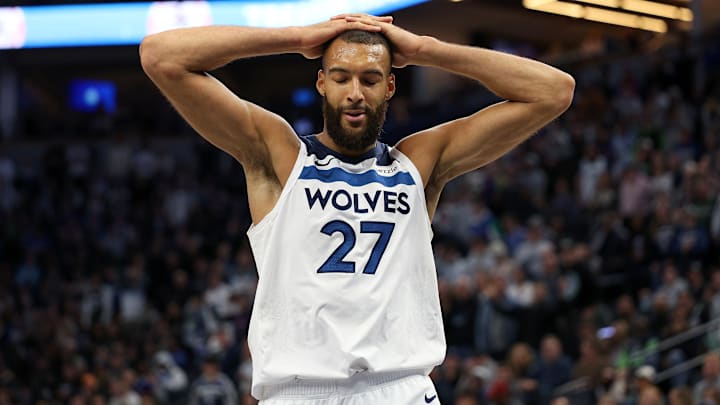One undistinguishable fact is that the Minnesota Timberwolves went further with Rudy Gobert than the Jazz ever did with him. Another is that they haven't gone as far as they hoped since acquiring Gobert three years. So now, they face a problem with Gobert that the Jazz did once upon a time: whether it's time to cut ties with the four-time Defensive Player of the Year.
The Jazz had this dilemma three years ago and ultimately decided it was time to start over. The Timberwolves aren't in the same place as the Jazz were back in 2022, but some similarities are worth mentioning.
How this Timberwolves-Gobert situation is similar
The main way these two situations compare is that the Timberwolves must ask themselves if this is as far as it goes with Gobert on the team, much like the Jazz did in 2022. Minnesota shouldn't second-guess whether acquiring Gobert was the right move. Making two of the last three Western Conference Finals (when they've had three in franchise history) points to yes, it was.
However, even with two consecutive Western Conference Finals appearances has also come with two consecutive humiliations. Getting Gobert gave the Timberwolves a higher ceiling like he did back when he was with the Jazz, but Minnesota not progressing like Utah did must also make them think if changing up the formula is the best course of action and Gobert might be the change they need.
Another similarity is this might be the best time for the Timberwolves to trade him much like it was for the Jazz. Minnesota wouldn't get the same haul Utah did, but his value is still relatively high for what he brings to the court.
How the Timberwolves-Gobert situation is different
The main way these two situations contrast is that the Timberwolves trading Gobert would not signal that they're rebuilding like the Jazz did when they traded him. Also, the Timberwolves' potentially getting rid of him may not have as much to do with their current place as a team as it does with their financial situation.
Unlike his days with the Jazz, the salary cap complications may be the driving factor for why Minnesota would trade Gobert. The NBA's luxury tax and tax aprons have made it harder than ever for teams to retain their title-contending teams for a long time. Because Gobert is expensive but still quite good, he may be the easiest deal for Minnesota to move.
Another difference is that Gobert is old enough now, at almost 33, that it will come into question how much longer he can keep playing at the level he has been. He is one of the best defenders the NBA has ever seen, but Father Time always comes calling, and there's no telling when Gobert will start to fall out of his prime.
Even if Minnesota keeps the Jazz alum, they enter the offseason with many questions. If there's one NBA team that can look at them and say, "Been there, done that," it's Utah.
